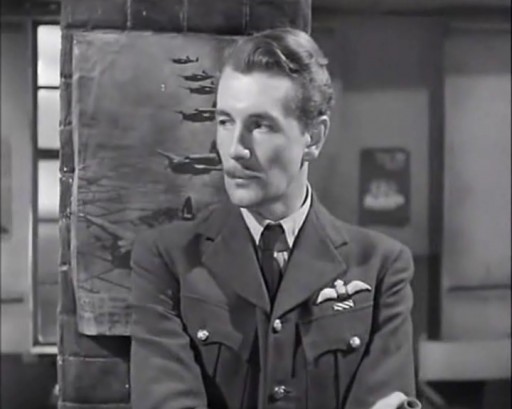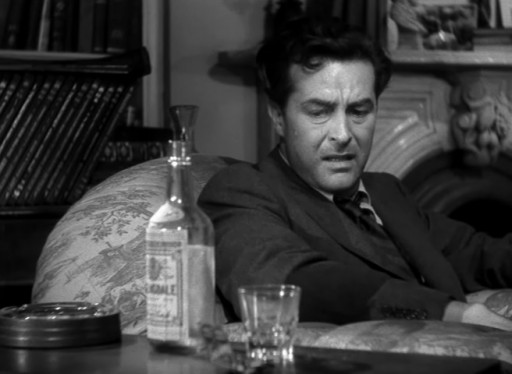
Here is Germany (1945, USA, Capra) – Those Germans look like ordinary folks on the surface, like people we can understand. “Or can we?!?!!(?!!)” Seems Nazi Germany was just the logical conclusion of centuries of German militarism. Their culture is all screwed up, and now it’s time to fix it. Watched it all. Interestingly, despite showing pictures from German extermination camps and gas chambers, this movie does not refer to Jews or anti-semitism directly. At all.
Counter-Attack (1945, UK, Korda) – I don’t mind watching a bit of pro-Soviet war propaganda, but I’d prefer if it was made by the Soviet Union itself, not Britain. Watched: 12 minutes.
The Horn Blows at Midnight (1945, USA, Walsh) – A bad musician dreams he’s gone to Heaven, which is all cutesy with white robes and angel choirs and ha-ha-funny parodies of earthly bureaucracies. Watched: 12 minutes.
Mildred Pierce (1945, USA, Curtiz) – Mildred Pierce murders her husband and frames some poor schmuck, but the police arrests her former husband instead, so now nobody’s happy, etc. etc. And then we go into flashback mode, and then I’m not happy. Watched: 20 minutes.
And Then There Were None (1945, USA, Clair) – A bunch of people on an island get killed off, one by one, by the butler. This is the earliest Agatha Christie filmatization I’ve seen, but it’s not a good one. Watched: 26 minutes. Despite the noise sometimes made about politically correct changes to classic novels, I’m glad nobody’s using the original title of this one any more.



